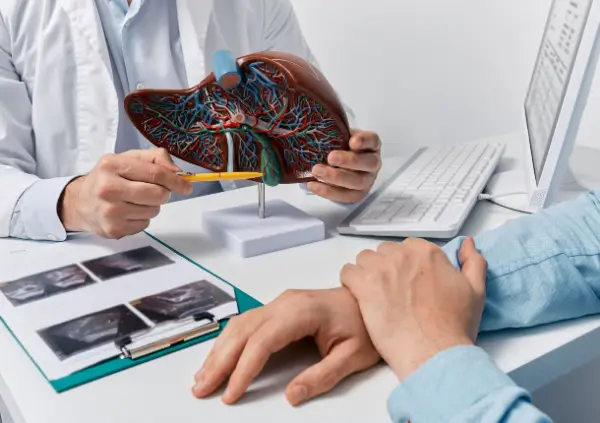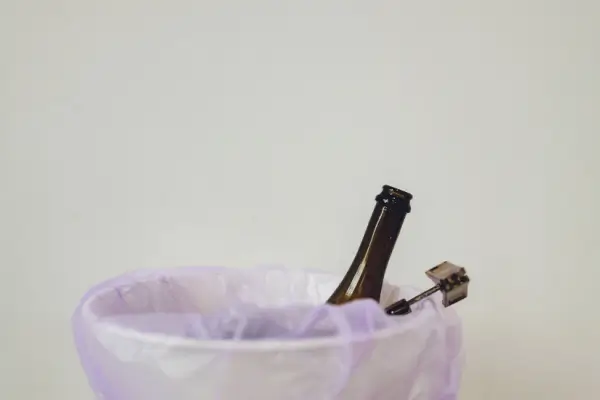
Finding Freedom: 12 Tips to Help You Stop Drinking
Legacy Healing Center Blog
Quitting drinking is one of the most difficult things that many people will ever do, but it is certainly possible. Every year, millions of people stop drinking, and many of them never start again.
Below, we’ll cover 12 tips and strategies that may make it easier to stop or cut back on your alcohol consumption.
If you’re looking for additional help, call 888-534-2295 today to speak with a staff member at Legacy Healing Center about our alcohol rehab treatment options.
Tip 1: Assess Your Relationship with Alcohol

To start the process of quitting alcohol, you first need to understand your relationship with it.
Some questions to ask yourself while assessing your relationship with alcohol include:
- Have you had times where you ended up drinking greater amounts, or for a longer amount of time, than you had intended?
- Have you ever tried to cut down or quit drinking but were unsuccessful?
- How much time do you spend drinking, looking for drinks, and recovering from drinking per week?
- Have you ever wanted a drink so badly that you found it impossible to think about anything else?
- Has drinking or recovering from drinking ever interfered with your work, school, family, or personal life? How often?
- Have you continued drinking despite it causing problems for you or your loved ones?
- Have you stopped or cut back on activities that you enjoy or that matter to you in order to drink?
- Have you ever drank in a situation where it would be physically or medically unsafe for you to do so?
- Have you ever blacked out?
- Have you continued to drink despite it making a mental health or medical problem worse?
- Have you had to increase how much you drink to get the same feeling?
- Have you experienced withdrawal symptoms if you cut back on drinking?
If you answered ‘yes’ to any of these questions, it could be a sign that you’re forming a tolerance for or dependence on alcohol, which can be a greater indicator of an alcohol use disorder.
Please note that only a trained professional can diagnose an alcohol use disorder, and that if you are seriously concerned about your drinking, it is always advisable to consult with an expert.
Tip 2: Gauge the Severity of Your Problematic Drinking

There are different types of problematic drinking, each with its own level of severity and corresponding needs for sobriety:
- Alcohol misuse: Alcohol misuse is whenever a person consumes an excessive amount of alcohol that puts them at risk for negative social and medical consequences.
- Binge drinking: Binge drinking is defined as having four drinks in under two hours for women and five drinks in under two hours for men.
- Alcohol tolerance: Alcohol tolerance is when an individual’s body has become so accustomed to alcohol that they must consume greater quantities of alcohol to experience the same effects.
- Alcohol dependence: Alcohol dependence is when an individual’s body has become so accustomed to alcohol that it no longer functions “normally” without it. The individual experiences a collection of very unpleasant (and potentially deadly) symptoms known as withdrawal if they reduce or cease alcohol use.
- Alcohol use disorder/alcoholism/alcohol addiction: An alcohol use disorder occurs when a person has a diagnosable addiction to alcohol that is defined by a combination of tolerance, dependence, and experiencing negative consequences because of drinking but continuing to do so.
At a minimum, therapy can help address the underlying causes of your drinking, regardless of the severity. However, if you determine you have an alcohol tolerance, dependence, or addiction, the safest way to stop drinking is in a medically supervised setting, as alcohol withdrawal can be fatal.
Tip 3: Write Down Why You Want to Stop Drinking

To better motivate yourself and increase your commitment, write down why you want to stop drinking. People who have a reason to stop drinking that truly matters to them are much more likely to stay committed and remain sober.
You can always use this list if you are considering returning to drinking to remind yourself of why this is so important. You might find it helpful to put this list where you will frequently see it and where you might be exposed to triggers (e.g., in the car, on the fridge, on your bathroom mirror).
Some examples of reasons people want to stop drinking include:
- Avoiding or healing negative health consequences like cancer, “wet brain,” liver failure, and death.
- Avoiding or healing relationship damage.
- Wanting to perform better at work or other important activities and responsibilities.
- Preventing birth defects in children.
- Developing better relationships with friends and family.
- Saving money.
- Participating more in other enjoyable or important activities.
- Avoiding legal consequences.
- Performing better athletically or in some other form of competition.
- Reducing symptoms of an existing mental health condition.
- Improving your social life.
“Be honest with yourself about your reasons for wanting to quit, and fully commit to it,” says psychiatric mental health nurse practitioner (PMHNP) Valerie Puffenberger. “Change is possible if you’re ready.”
Tip 4: Remember the Risks of Excessive Alcohol Consumption

Although many people casually dismiss the risks of excessive alcohol consumption, they are actually quite severe. Alcohol is a powerful and addictive drug that causes many mental, physical, and social consequences.
In fact, alcohol can seriously impact and even destroy all aspects of your life. Every year, alcohol causes millions of divorces, assaults, and deaths.
Here are some sobering stats about alcohol to help you stop drinking:
- Alcohol-associated liver disease is responsible for 1/3 of all liver transplants.
- 47.4% of all liver disease is caused by alcohol consumption.
- Between 2019 and 2020, alcohol-related deaths increased by 25.5%.
- 31% of all driving fatalities are caused by alcohol consumption.
- 21% of all suicides occur while the victim has been drinking.
- Alcohol misuse causes $249 billion in damages each year in the United States alone.
- 75% of the economic costs of drinking result from binge drinking.
- 36% of incarcerated inmates were drinking alcohol at the time of their offense.
- At least 3 million violent crimes occur each year when the perpetrator had been drinking.
Tip 5: Set SMART Goals

SMART goals can help you create a realistic roadmap to quitting alcohol. These types of goals make it easier to track and, ultimately, achieve sobriety.
SMART is an acronym for the five criteria that these goals need to meet:
- Specific: What will be done or accomplished?
- Measurable: How will you measure success?
- Achievable: Are you capable of meeting the goal?
- Relevant: Why is this goal important to the greater end goal?
- Time-bound: What is the time frame for achieving the goal?
Some examples of possible SMART goals that can help people who are learning how to quit drinking include:
- I will reduce my drinking by 50% every week for four weeks.
- I will stop drinking for three months and reassess how my life has been impacted at that point.
- I will refrain from drinking at company or family events for one year.
- I will keep a daily journal to record any cravings, triggers, or situations that make me want to drink and rate them on a scale of 1-10.
- I will not enter a bar, nightclub, or any other environment dedicated to drinking for a year.
When creating and setting out to accomplish your SMART goals, Puffenberger says, “Take it one day at a time. Don’t overwhelm yourself looking too far ahead. Just focus on not drinking today.”
Tip 6: Tell Others About Your Plan to Quit Alcohol

One of the best ways to increase your likelihood of maintaining your sobriety is to get your friends and family involved. Telling others about how you plan to stop drinking both invests them in your success and makes you accountable to them.
Telling others about how you plan to stop drinking provides you with support. Many people will go out of their way to help you stop drinking, such as refusing to drink around you or holding you accountable if you drink.
Support can come in many ways. For example, a family member might be willing to contribute to you going to rehab, or your friends might plan non-drinking events. Most importantly, others, especially those who have quit drinking themselves, can provide advice and strategies you can incorporate into your life.
Tip 7: Build a Support Network

The support of others, especially those who don’t drink, is critical for most as they figure out how to stop drinking. The advice and community that they provide reduce the likelihood of relapse while increasing the quality and enjoyment of life.
If you are having trouble finding others that don’t drink, consider the following options:
- Attend alcohol-free events.
- Join and regularly attend support groups like Alcoholics Anonymous (AA) or SMART Recovery.
- Look for groups or communities on social media.
- Volunteer for causes you are passionate about.
- Join a gym and/or participate in fitness classes.
- Attend sober workshops and retreats.
- Ask friends if they know of other sober people.
- If you can’t find groups, start your own.
“Don’t go it alone,” says Puffenberger. “Consider counseling, treatment programs, and peer support groups. They will help guide you through the process.”
Tip 8: Detox Safely

Alcohol withdrawal symptoms are not just highly unpleasant. Alcohol withdrawal is dangerous when undergone without medical supervision and is often deadly. Delirium tremens, which can cause seizures and hallucinations, is the most dangerous alcohol withdrawal symptom.
The only safe way to go through alcohol detox, especially in the case of long-running or severe alcohol use disorders, is to attend a medically monitored detox program. In-patient medically monitored detox is always advisable, but some programs allow patients to reside at home while still receiving medical support.
Not only does detox keep patients safe, but it also saves them physical and mental discomfort, which makes it more likely that they will successfully get through withdrawal without relapse.
Tip 9: Talk to a Therapist or Addiction Counselor

Getting professional help is the single biggest thing you can do to improve your chances of successfully achieving and maintaining sobriety. This is especially true when professional help comes in the form of a therapist or addiction counselor.
Therapists and addiction counselors provide many benefits to someone figuring out how to stop drinking. Some of the most important include:
- Personalized treatment
- Emotional support
- Help finding the root causes of why you drink
- Diagnosis of co-occurring mental health conditions
- Behavioral therapy that changes thought patterns and behaviors
- Relapse prevention
- Accountability
- Education
- Family and relationship improvements
Tip 10: Know and Avoid Triggers

Triggers are people, places, things, emotions, sights, sounds, situations, or anything else that either make you want to drink or reduce your ability to resist cravings. You should make every reasonable effort to avoid triggers.
For example, removing alcohol from the house is a necessary early step for most of those who are learning how to stop drinking. Another example would be changing jobs from an establishment that serves alcohol to one that doesn’t.
To avoid potential triggers, you first need to know what yours are. While everyone has a unique set of triggers, some of the most common examples—and tips on how to avoid—them include:
- Stress: Learn proper stress management techniques and activities.
- Peer pressure: Change your social group to a more supportive and/or sober one.
- Boredom: Fill your day with non-drinking activities and responsibilities.
- Mental or physical health issues: Get proper mental health or medical treatment.
- Financial distress: Reduce your financial obligations or change spending habits.
- Relationship issues: Consider ending or minimizing relationships that are causing you distress.
“Expect ups and downs, not instant perfection,” says Puffenberger. “Lapses may occur as you rewire your brain. Just recommit after a slip-up and keep going.”
Tip 11: Learn Techniques for Dealing with Urges to Drink

Unfortunately, it is not always possible to avoid triggers. That is why it is so important to know techniques for dealing with urges to drink when they arise.
“When a craving hits, avoid fighting it directly. Instead, delay and distract yourself until it passes,” says Puffenberger.
Some common urge-curbing techniques that can be helpful when learning how to stop drinking include:
- Practice grounding techniques that turn attention away from thoughts or feelings associated with wanting to drink.
- Learn how to “surf the urge,” or practice techniques that allow you to experience the urge without giving in to it.
- Replace an alcoholic drink with a non-alcoholic one, like a sparkling water or non-alcoholic beer.
- Reach out for support, especially from a sponsor or individual helping keep you accountable.
- Focus on something else, such as a game on your phone or program on TV.
- Remember the reasons why you have stopped drinking.
- Compare the benefits of remaining sober with the drawbacks of giving in to the urge.
- Take a walk.
Tip 12: Discover Your Alcohol-Free Self

Many, if not most, of those who engage in excessive drinking do not really know who they are without alcohol. This is especially true of those who have engaged in long-term alcohol misuse or began misusing alcohol at a young age.
It is common for people to find that they like their alcohol-free self more than the person they are with alcohol. It is even more common that people find that their alcohol-free self is a much more successful and accomplished person with more and better relationships.
Unfortunately, many people do not even know how to discover their alcohol-free self. One of the best ways to do so is to explore activities, hobbies, and interests to fill the time that would have otherwise been spent drinking. These activities can help you discover what you really like and who you really are, without alcohol.
Examples of activities, hobbies, and interests that can help you discover your alcohol-free self include:
- Exercise and fitness
- Creative arts
- Cooking and baking
- Gardening
- Reading
- Volunteering
- Meditation and mindfulness
- Board games and puzzles
- Outdoor activities and adventures
- Learning new skills
- DIY projects and crafts
- Travel and exploration
- Social groups and clubs
- Educational pursuits
- Going to restaurants
- Music and concerts
- Podcasting and blogging
- Galleries, museums, and zoos
- Theme parks
- Fostering or adopting pets
We’re Here to Help You Stop Drinking
If you or someone you love wants to find a way to stop drinking, Legacy Healing Center is here to help. Achieving and maintaining sobriety can be very challenging, but millions of people successfully do it every year. You or your loved one can do it too.
Legacy Healing Center believes that the only way to successfully treat patients suffering from an alcohol use disorder is to utilize a three-pronged, holistic approach that heals the mind, body, and spirit. Some of the treatments that Legacy provides include:
- Scientifically proven clinical therapy
- Individually tailored medication management
- Personalized aftercare and planning
- Integration of life factors
- And much more
If you or a loved one wants to learn how to stop drinking, call 888-534-2295 today to speak with a treatment staff member at Legacy Healing Center.
How to Stop Drinking FAQs
Why is it important to stop drinking alcohol?
Alcohol is a dangerous and addictive drug responsible for an incredible amount of personal and societal harm. Alcohol can cause and worsen mental and medical health conditions, many of which are fatal. Alcohol causes tremendous damage to personal relationships, careers, financial situations, and virtually all aspects of life. Alcohol use dramatically worsens life outcomes and personal achievement and satisfaction. The sooner you quit alcohol, the fewer consequences you will experience because of drinking.
What are the steps to quit drinking?
Everyone must take their own unique path when quitting drinking. This is because everyone’s needs and circumstances are different. Additionally, quitting drinking is not usually a linear process. Some steps will have to be repeated over and over. However, most individuals will experience steps that look something like this:
- Admit that you have a problem with alcohol.
- Commit yourself to quitting drinking.
- Seek professional help.
- Attend medically supervised detox.
- Attend an inpatient rehab or partial-hospitalization program (PHP).
- Attend an intensive outpatient program (IOP).
- Attend an outpatient program (OP).
- Attend an aftercare program.
- Continue attending and participating in support groups.
- Replace alcohol with other activities and interests.
How can I overcome alcohol cravings?
The best way to overcome alcohol cravings is with the help of addiction counselors and therapists. They can help you identify triggers and underlying causes of alcohol use and develop better coping mechanisms. They can also diagnose and treat co-occurring mental health or medical issues that make dealing with cravings more difficult. In some cases, they may be able to prescribe medications that reduce cravings. Most importantly, they can use therapeutic techniques to improve emotional regulation, self-control, thought patterns, and behaviors.
What support systems are available for quitting alcohol?
Having strong support systems is critical for most people as they figure out how to stop drinking. Some of the best and most effective support systems that help people achieve and maintain sobriety include:
- Family and friends
- Support groups
- Sponsors and mentors
- Mental and medical health professionals
- Sober living communities
- Rehab facilities
- Online support communities
- Religious or spiritual organizations and professionals
- Educational resources
- Crisis hotlines and helplines
- Fitness and wellness groups
- Professional groups
What are some potential health benefits of quitting drinking?
Alcohol impacts virtually all the body’s organs, and quitting drinking has numerous major health benefits. Some of the most common and significant include:
- Improved sleep
- Weight loss
- More hydrated
- Reduced risk of accidents
- Improved digestive health
- Reduced risk of liver disease
- Reduced risk of cancer
- Improved cardiovascular health
- Enhanced mental health
- Improved immune system
- Better cognitive function
- Reduced risk of pancreatic
- Healthier skin
- Reduced risk of esophageal and stomach damage
Sources
- Centers for Disease Control and Prevention. (2018). Alcohol & Substance Misuse.
- National Health Service UK. (2022). Overview Alcohol Misuse.
- National Institute on Alcohol Abuse and Alcoholism. (2023). Alcohol Facts and Statistics.
- U.S. Department of Justice. (1998). Alcohol and Crime.
- National Institute on Alcohol Abuse and Alcoholism. (2020). Alcohol Use Disorder: A Comparison Between DSM-IV and DSM-5.
- University of California. (2016-17). SMART Goals: A How to Guide.
